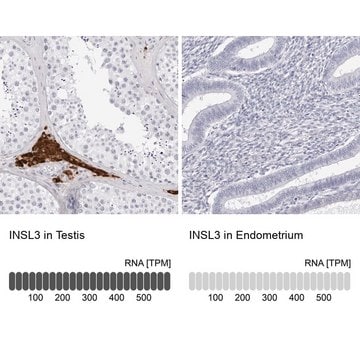MABC573
Anti-Bcl-2 Antibody, clone 1D7.2
clone 1D7.2, from rat
Sinonimo/i:
Apoptosis regulator Bcl-2, Bcl-2
About This Item
Prodotti consigliati
Origine biologica
rat
Livello qualitativo
Forma dell’anticorpo
purified immunoglobulin
Tipo di anticorpo
primary antibodies
Clone
1D7.2, monoclonal
Reattività contro le specie
mouse
tecniche
western blot: suitable
Isotipo
IgG2aκ
N° accesso NCBI
N° accesso UniProt
Condizioni di spedizione
wet ice
modifica post-traduzionali bersaglio
unmodified
Informazioni sul gene
mouse ... Bcl2(12043)
Descrizione generale
Specificità
Immunogeno
Applicazioni
Apoptosis & Cancer
Apoptosis - Additional
Qualità
Western Blotting Analysis: 0.5 µg/mL of this antibody detected Bcl-2 in 10 µg of mouse myoblast C2C12 cell lysate.
Descrizione del bersaglio
Stato fisico
Stoccaggio e stabilità
Altre note
Esclusione di responsabilità
Not finding the right product?
Try our Motore di ricerca dei prodotti.
Codice della classe di stoccaggio
12 - Non Combustible Liquids
Classe di pericolosità dell'acqua (WGK)
WGK 1
Punto d’infiammabilità (°F)
Not applicable
Punto d’infiammabilità (°C)
Not applicable
Certificati d'analisi (COA)
Cerca il Certificati d'analisi (COA) digitando il numero di lotto/batch corrispondente. I numeri di lotto o di batch sono stampati sull'etichetta dei prodotti dopo la parola ‘Lotto’ o ‘Batch’.
Possiedi già questo prodotto?
I documenti relativi ai prodotti acquistati recentemente sono disponibili nell’Archivio dei documenti.
Il team dei nostri ricercatori vanta grande esperienza in tutte le aree della ricerca quali Life Science, scienza dei materiali, sintesi chimica, cromatografia, discipline analitiche, ecc..
Contatta l'Assistenza Tecnica.








